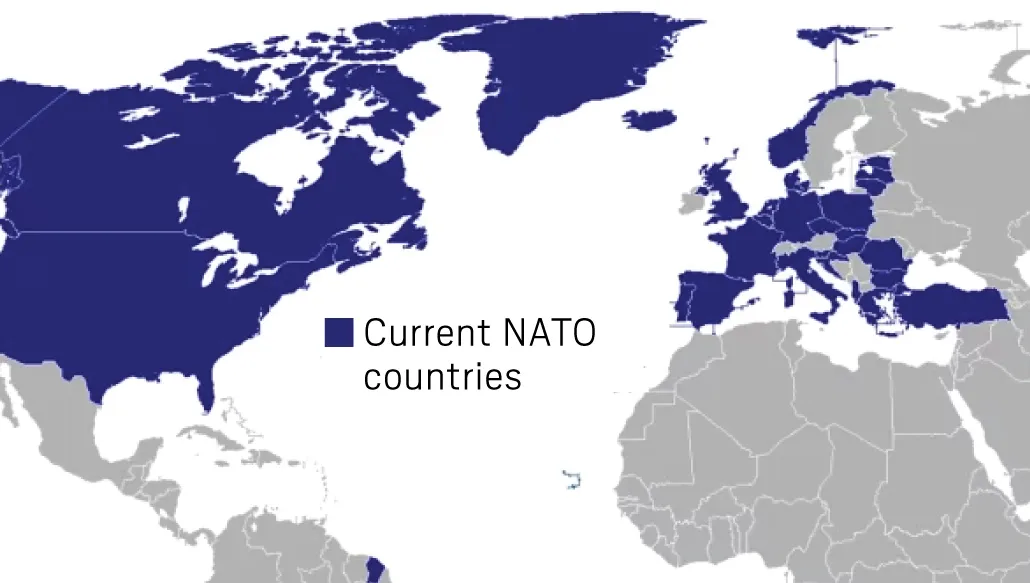Table of Contents
The Ponderer
This article is explicitly intended as a reply/followup to Dr Lion Red’s excellent article moving from that balanced view of history to analyse the present and imagine possible futures.
There has been a long, complicated and bloody history bringing Israel / Palestine to where it is now. To understand this history, I strongly recommend reading Dr LionRed’s excellent recent article first.
At present Israel is at war with Hamas, and has a goal of eradicating Hamas from Gaza. But Hamas is only a symptom of a much deeper problem. There is a deep-seated animosity between the Jewish and Arab populations, due to the long bloody history, and due to fundamental religious tensions, that have resulted in violence on and off for the last century. Violence occurred before Hamas existed, and will continue if they are eliminated because Hamas is just an expression of this deeper problem – Islam is fundamentally violent and anti-Jewish, and Palestinians are angry.
So is it even possible to have peace? What could peace even look like?
Today, Israel/Palestine contains approximately 14 million inhabitants – 9 million Israelis and 5 million Palestinians. Of these, approximately 7 million are ethnic Jews, and 7 million are Arabs. The vast majority of these people on both sides have been born in the land, and regardless of where their ancestors came from and why, this is the land of their birth and therefore their personal homeland.
Through most of the West, democracy has a major role in preventing violence. Whenever we have concerns about how the country is run, instead of taking up arms, we wait for the next election in the hope that we can change the situation peacefully at the ballot box. Usually, this is a vain hope, but the hope itself is what keeps political violence away. Each election can be, in theory, a peaceful revolution.
However, in Israel, most of the dissatisfied residents have no hope of voting their way out. The holy land is either directly ruled or indirectly controlled by the Israeli Government, and only Israeli citizens can vote for that government. The other 5 million are only citizens of “Palestine” – which is not a real country. The Palestinian Government controls no land of its own (it rules parts of the West Bank but only under Israeli oversight, and has no control over Gaza). In practice, it is only a local government of some small regions within the state of Israel.
Elections are a peaceful revolution. But, as JFK said:
Those who make peaceful revolution impossible will make violent revolution inevitable.
In the long term, an essential element of peace would be a situation where every person living in the land has an equal influence (or lack of influence) on their own government. That is easy to say, and very hard to achieve.
Stepping back from the details, there are basically five different ways that the Holy Land could be ruled, with all residents being treated equally, thus giving any hope of peace. And all of them are terrible.
Three could involve all present residents:
1: Empire.
2: One-state solution.
3: Two-state solution.
And two would only follow ethnic cleansing:
4: Arabs expelled, pure Jewish state
5: Jews expelled, pure Arab state
1: Empire
The Holy Land has been ruled by foreign empires for long periods of its history. Most recently it was ruled by the Ottoman Empire for 400 years. Although there were many very negative things about the Ottomans, one thing that cannot be denied is that they achieved 400 years of peace in the Holy Land, with Muslims, Christians and Jews all living there. The Jewish population actually grew markedly during the 19th century under Ottoman rule, as they allowed a degree of Jewish immigration.
So the Holy Land could be ruled by an external power. But is it realistic? The British tried that briefly (the British Mandate period) and ultimately abandoned the territory. No decent country appears likely to try and take on that job again (the USA wouldn’t do it). The only countries that might be interested would be Iran or Turkey, and either would be very undesirable for obvious reasons. This is not a feasible option.
2: One-state solution.
The entire land could be taken over fully by Israel. Every Palestinian could be made a citizen of Israel and allowed to vote in the Israeli elections.
That sounds all rosy and democratic, but the immediate result would be that Jews would no longer be a majority in Israel – at best they would be around 50% of the population. And as the Palestinian population is younger and the Israeli population older, within a few years the Jews would be a minority of the voting population.
This could never be agreed to by the Israelis as it would mean the end of the Jewish State.
3: Two-state solution.
This is the approach favoured by the international community – make the West Bank and Gaza a true country, with its own elected government, and a hard border with Israel.
However, once Palestine is a real country it is permitted to have a military. The population will still hate the Jews and want to reclaim their lost land. When Israel withdrew from Gaza and left it under full Palestinian control, it did not become a prosperous state but instead armed up and continued to pursue the fight against Israel. Were Palestine a real country, with a real military, armed by sizeable donations of equipment from surrounding Muslim states in the same way that Israel is armed by donations from the USA, Israel would soon be in an extremely precarious security situation.
Israel will never actually agree to a two-state solution, because it is almost as dangerous to the Jews as a one-state solution. They will pay lip-service to the idea, but never actually allow it to be implemented.
4: Expel the Arabs.
Push the Gazans out into the Sinai, and the West Bank Palestinians into Jordan. Take all the land for Israeli settlement.
This would eliminate the internal threat to Israel, and create a truly uniform Jewish state. However, this mass expulsion of millions of people would not be acceptable to Egypt, Jordan or any of the other Muslim countries. Any attempt to do this would result in a regional war, so would actually make Israel less secure.
Update: After this article was written, a document claiming to be Israel’s actual long-term plan for Gaza was leaked from an Israeli government source and states that Israel’s preference of three options is to expel all the inhabitants of Gaza to the Sinai. Read more at Zerohedge
“The existence of the document does not necessarily indicate that its recommendations are being implemented.”
Zerohedge
5: Expel the Jews.
All the Jews pack up and leave, maybe to the USA, or to an underpopulated region of post-war Ukraine once that mess is over. That doesn’t bear any further consideration, but the list wouldn’t be complete without it.
So five options, all of which are terrible. Are there any ways that this situation could be resolved that are actually workable?
What is Israel’s actual plan for peace, after they eliminate Hamas but are still left with millions of angry Palestinians? Is there a plan at all?
Most probably, the status quo will remain. Palestinians will be angry with Jewish settlement, unable to vote to change it, their anger will turn to violence and Islamic terrorism, innocent Israelis will die, the Israeli Government will crack down on the Palestinians to teach them a lesson in the hope of dissuading further violence, which will only cause other Palestinians to get even more angry, and the cycle will continue.
The only things that I can imagine would fundamentally change this situation one way or the other would be:
A: Another massive Middle Eastern or global war, ending either in a complete victory for Israel (resulting in option 4) or a complete victory for their enemies (resulting in either option 5 or 1). Which in either case would only be a bloody road to a bad solution.
B: Or a complete philosophical change, such as a massive Christian revival in which hundreds of thousands of Israeli Jews and Arab Muslims became Christians, and saw each other as brothers and sisters instead of enemies. This could cause them to push their respective societies to lay down their arms, setting the stage for a peaceful implementation of option 2 or 3, and giving them the mutual generosity to actually make that option work.
Sadly A seems a million times more likely than B, but we can pray.









